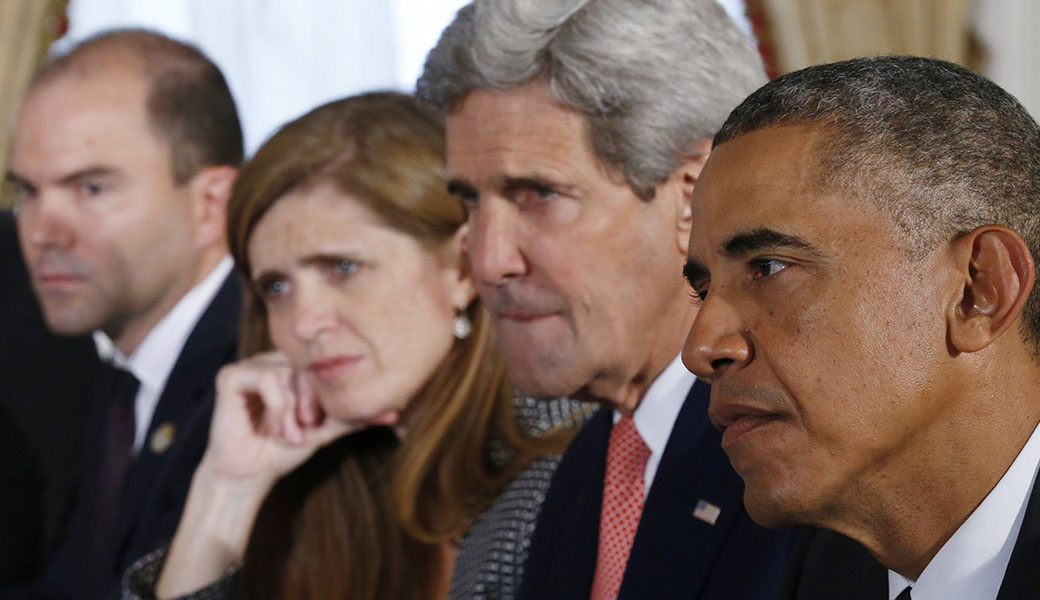In the nine months or so since Greg Barker put down his camera for “The Final Year,” a look at the complicated reality of U.S. foreign relations through the last 12 months of the Obama presidency via the travels of the State Department has morphed into feeling like a far-off fantasy in a world where the current Secretary of State reportedly referred to the Commander-in-Chief as a “moron” and nuclear war with North Korea is never mentioned once. This isn’t to say “The Final Year” is dated – actually quite the contrary as it appears to be far more interested in the job of the State Department rather than those who temporarily hold positions there – yet to witness competency and compromise in regards to the work of the American government is an undeniable part of the appeal of Barker’s embed, particularly when it’s presented as clearly as it is here.
Briskly paced like the jetsetting team it follows, “The Final Year” ably translates diplomacy into action in joining up with Samantha Power, the U.S. Ambassador to the United Nations, Ben Rhodes, Deputy National Security Adviser for Strategic Communications, and to a lesser degree, Secretary of State John Kerry. The decision to focus on Power and Rhodes isn’t an issue of access – President Obama and National Security Advisor Susan Rice both feature prominently in interviews, as does Kerry – but narrative efficiency, reflecting the president’s desire to assemble a team of rivals that challenge each other with different perspectives. While Power and Rhodes likely agree more than not on general policy, they couldn’t have more different temperaments or attitudes towards their work as the former, a calm and collected Harvard professor said to hold the president to his conscience, eagerly engages with everyone she meets, and the latter, a young buck famously derided for his brash, off-the-cuff style in a New York Times Magazine profile, enjoys staying behind the scenes to write speeches and wears his emotions on his sleeve. Both are brilliant and passionate, and although grim curiosity about how the staff will react over the election of Donald Trump supplies its own suspense (limited in consideration by the fact that no one thinks he will get elected), “The Final Year” is largely fueled by the study in contrasts as they carry out the president’s wishes in using the end of the administration’s time in power to make progress on long-term goals such as climate change and the normalization of Cuba.
Given the workload, Power and Rhodes aren’t allowed to linger in any one place or on any one issue for long, nor does Barker, making such milestones as the Iran nuclear agreement come and go with relatively little fanfare. However, “The Final Year” always makes time for the acts of diplomacy that never receive fanfare in the first place, following Power out into the streets outside of the U.N. to beg a Saudi Arabian official to check out a VR experience of a refugee camp or delaying a flight after visiting a real camp in Cameroon to comfort a grieving mother after hearing about an accident caused by the motorcade she’s a part of. Small actions that will never show up in an official report or any newspaper appear before Barker’s lens, relating the decisions ultimately made at a government level to the firsthand experiences of the officials. Demonstrating the human element that goes into doctrine, “The Final Year” does something more impressive than capture history being made by elucidating how it is made, creating a time capsule that may be even more interesting decades on than it is right now.
“The Final Year” will next play at the London Film Festival on October 8th and 9th and DOC NYC on November 9th.





Comments 1